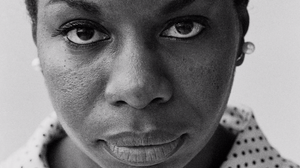This week we continue from last week's post with yet more lies circulating in parts of the therapeutic community that are unhelpful to porn/sex addicts and their spouses.
3. Your husband isn't a sex addict...or is he?
Many women have felt incredibly invalidated when they were told their husband wasn’t actually a sex addict. The conversation with the specialist usually goes something along the lines of, "Your husband isn’t a sex addict because (pick one or more):
- a. he doesn’t exhibit compulsive behaviours
- b. there isn’t a loss of control,
- c. he’s not escalating in his behaviours,
- d. he didn’t score high enough on his (self-filled-out) assessment.
Last week I read The Biology of Desire, by Marc Lewis. Lewis addresses the arguments above saying:
- a. addictive brain functioning is in place prior to compulsivity,
- b. earlier stage addicts have impulse control issues, but their addiction network may not have taken other networks (around control) completely offline yet,
- c. addicts go through stages of escalating, coasting, de-escalating: all while remaining addicts
- d. addicts lack capacity to evaluate and honestly report their issues.
Regarding this last point, there are going to be cases where the wife believes her husband has a sexual addiction (or at least a sexual problem) and specialists in the therapeutic community aren’t going to agree—due to their particular training.
However, some therapists who specialize in sex addiction use a broader framework which they may call “problematic sexual behaviour.” Under such frameworks the therapist may validate your concerns because the repeated sexual behaviors:
- Conflict with your husband’s commitments and/or
- Conflict with his values and/or
- Conflict with his self-control and/or
- Result in negative consequences and/or
- Lack fundamental sexual responsibility
Under such a framework* (which could encompass behaviours from habitual lusting to some types of illegal activities), the therapist can acknowledge that there is a problem and, if your husband wants help, can draw from a number of different models and resources to work with him.
If that therapist is well trained (or simply empathic) he/she will likely be considering the impact on you and looking to make sure your needs are also attended to.
4. Slips/relapse are inevitable
I was recently part of a discussion on Facebook about relapses vs. slips. Since I had just finished reading a book that tackled this subject, I decided to chime in with the author's thoughts. In TINSA: Trauma Induced Sex Addiction, Michael Barta writes:
“In TINSA, slip and relapse are synonyms...I realize here that I may create controversy, but many skilled clinicians have come to agree: it seems that when it comes to many programs that treat process addictions, the term slip has caught on as a way for addicts to continue destructive behaviors without taking accountability for the fall.”
Moreover, Barta takes a hard line with regards to addicts trying to excuse and justify relapses. As an APSATS-certified therapist, who takes a very partner-sensitive approach, he challenges the relapsed addict to... "run that rationalization by your spouse or partner and see how she responds.”
However, Barta also approaches addiction predominantly from the medical model (see "his brain made him do it" in last week's post). In this model relapses are seen as pretty much inevitable... or... inevitable.
And while relapse is certainly a common phenomenon with sex addicts, experience would show that many do not in fact ever relapse (I realize that "ever" is hard to track, but I did follow one sex addict's course of sobriety until his death in his late 70's... 30+ years of sobriety).
There are, however, other models/approaches to addiction and sex addiction. The famous "rat park" experiments of the 1970's spawned a social model of addiction. Later a psychological model developed. More recently there's been Marc Lewis' learning model.
A lot of these models actually overlap (and in fact I see Barta adopting some of the psychological model despite his medical model background). In these other models, relapse is not seen as a given. Common? Sure. But not inevitable. Moreover, in such models addicts aren't seen as being addicts (on the brink of relapse) forever. They are understood at some point (should they find the determination and tools to work their way there) to be healed of the addiction.
This explains the cases of many sex addicts I've met over the years: addicts with 8+, 10+...30+ years of sobriety without a single relapse. I'm not sure why we, as Christians, should find that surprising. Are not all things possible with God? I get the impression that many in the early church were coming out of broken backgrounds, such as alcoholism and sex addiction... but they were "washed, sanctified, justified" (1 Corinthians 6:9-11). Leaving behind the old identity and adopting a new identity in Christ can actually be a powerful help in moving beyond addiction.
Our Stories
If relapse has been part of your husband's story, then you know how the discovery/disclosure of that can feel as bad (even worse) than the initial discovery/disclosure. One of the other things the learning model of addiction teaches is that addicts usually come to full recovery when it becomes too painful to continue in addiction. Take that as permission to share your pain, anger and disappointment—and act on boundaries/consequences previously set around relapse. Because if our husbands can partake of the actual cost (in terms of emotional/spiritual pain) of their addiction, it can help prevent further relapse.
*Thank you to SA/partner trauma therapist Bill Herring for developing the "Chronically Problematic Sexual Behavior" framework.
It's a mix of truth and grace that we all need if we're going to grow and heal. We can trust the one who came to us, "full of grace and truth."


